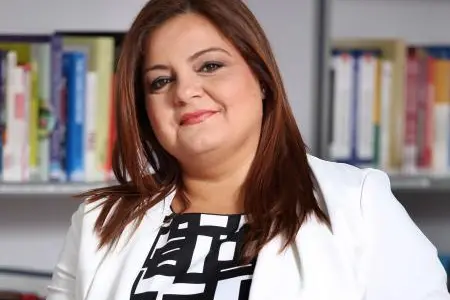PHOTO
Dubai: The University of Manchester Middle East Centre is hosting a series of Masterclasses in Dubai that are free and open to the public, with prior registration.
Each Masterclass is delivered by a leading academic from the university and offers an MBA-style classroom experience. The series of three Masterclasses provide attendees with the opportunity to learn more about a diverse range of business subjects, from negotiation skills to service design, and disruptive technologies and business model innovation.
The Masterclasses
Negotiation Skills: Just how important are they?
Date: Tuesday, 19th March, 2019
Time: 6:30pm to 8:30pm
Venue: The University of Manchester Middle East Centre, Dubai Knowledge Park, Block 2B, Classroom F11, Dubai, UAE
Everything starts with a negotiation, whether we like it or not. Some people take the time to learn the skills needed to extract the maximum value for themselves from every negotiation. They achieve better personal outcomes as a result.
Professor Malcolm Smith
Failures & Service Design
Date: Sunday, 24th March, 2019
Time: 6:30pm to 8:30pm
Venue: Jumeirah Emirates Towers Hotel, Dubai, UAE
All great service companies have a clear compelling service strategy for bringing value to their customers. Yet, it's not unusual, for example, for airlines to misplace and lose luggage or to turn away paying customers because of overbooking. The newspapers are often full of headlines and stories from angry and disappointed customers. This Masterclass will focus on operations and examine the missing links, the implications of poor service design, and the financial implications of failures when operations fail to meet their customers’ expectations.
Professor Paul Taaffe
Disruptive Technologies and Business Model Innovation
Date: Tuesday, 26th March, 2019
Time: 6:30pm to 8:30pm
Venue: The University of Manchester Middle East Centre, Dubai Knowledge Park, Block 2B, Classroom F11, Dubai, UAE
The study of business models is not new but new technologies now have the capacity to disrupt and may change broad consumer behaviour. There are winners and losers. This Masterclass will look at the phenomenon of disruption in action, and reflect on the exponential growth of IT and its potential impact on businesses models.
Oswaldo Lorenzo is a Visiting Professor at Alliance Manchester Business School
*Prior registration is required: http://manchester.ac.ae/Events
Places will be allocated on a first-come-first-served basis. Attendance is free and there is no participation fee.
Randa Bessiso, Director - Middle East at The University of Manchester, comments: “The University of Manchester Middle East Centre’s Masterclasses are presented by leading teaching faculty who are also practitioners in their areas. The Masterclasses provide insights, as well as a taste of the MBA learning experience, and are part of our commitment to sharing our knowledge for the benefit of the community.”
The University of Manchester Middle East Centre has supported more than 2,500 part-time MBA students based in the region and has graduated more than 1,400 students since opening in Dubai Knowledge Park in 2006, making it the largest and fastest growing centre in the University’s international network. The blended learning part-time study option leads to the internationally recognised Manchester MBA degree awarded by the University of Manchester.
-Ends-
About The University of Manchester Middle East Centre
The University of Manchester Middle East Centre at Dubai Knowledge Park opened in 2006 and is the largest and fastest growing in the university’s international network comprising six hubs in key business cities around the world. The Centre has supported more than 2,500 Manchester Global Part-time MBA students in the region, and graduated more than 1,400 MBA students. The Middle East Centre has recently launched a new portfolio of executive education programmes and introduced a series of new, industry-led specialist Masters programmes; the first of these are the MSc Reliability Engineering and Asset Management, and MSc International Healthcare Leadership. The Centre works in regional collaborations with a range of industry groups, professional bodies and companies, and supports a regional alumni association with more than 2,500 members.
About The University of Manchester
The University of Manchester is currently delivering a £1 billion 10-year masterplan for its campus to create world-class facilities for staff, students and visitors. This includes the redevelopment of the Alliance Manchester Business School, the £350m Manchester Engineering Campus Development and the Graphene Engineering Innovation Centre (GEIC).
Completed projects so far include the award-winning National Graphene Institute and The Whitworth Art Gallery.
Issued on behalf of The University of Manchester Middle East Centre.
Media contact:
Jonathan Walsh
WPR Dubai
jon@wprme.com
Disclaimer: The contents of this press release was provided from an external third party provider. This website is not responsible for, and does not control, such external content. This content is provided on an “as is” and “as available” basis and has not been edited in any way. Neither this website nor our affiliates guarantee the accuracy of or endorse the views or opinions expressed in this press release.
The press release is provided for informational purposes only. The content does not provide tax, legal or investment advice or opinion regarding the suitability, value or profitability of any particular security, portfolio or investment strategy. Neither this website nor our affiliates shall be liable for any errors or inaccuracies in the content, or for any actions taken by you in reliance thereon. You expressly agree that your use of the information within this article is at your sole risk.
To the fullest extent permitted by applicable law, this website, its parent company, its subsidiaries, its affiliates and the respective shareholders, directors, officers, employees, agents, advertisers, content providers and licensors will not be liable (jointly or severally) to you for any direct, indirect, consequential, special, incidental, punitive or exemplary damages, including without limitation, lost profits, lost savings and lost revenues, whether in negligence, tort, contract or any other theory of liability, even if the parties have been advised of the possibility or could have foreseen any such damages.




















